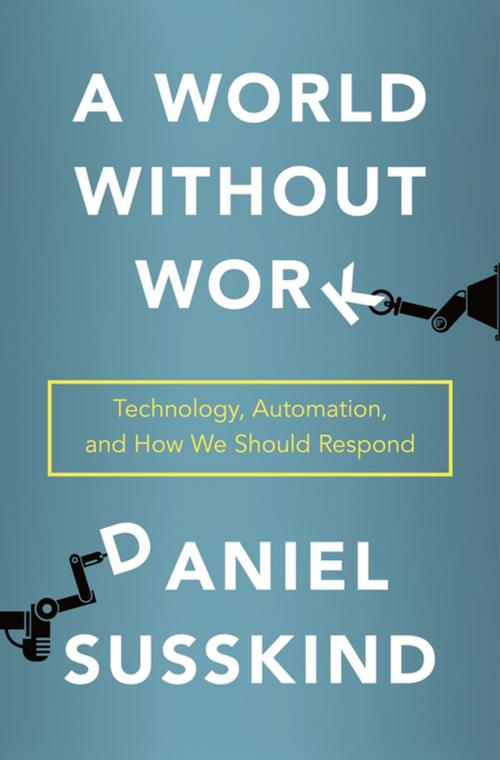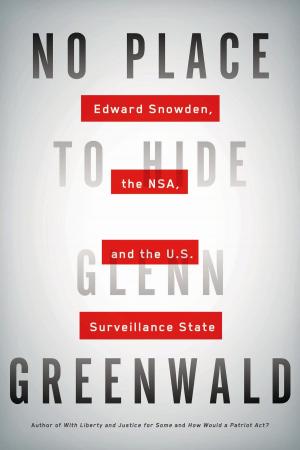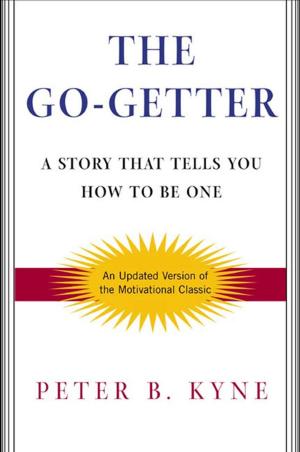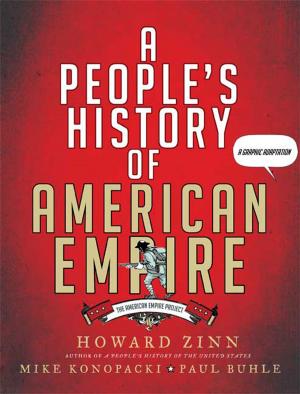A World Without Work
Technology, Automation, and How We Should Respond
Nonfiction, Science & Nature, Technology, Automation, Business & Finance, Career Planning & Job Hunting, Labor, Social & Cultural Studies, Social Science| Author: | Daniel Susskind | ISBN: | 9781250173522 |
| Publisher: | Henry Holt and Co. | Publication: | January 14, 2020 |
| Imprint: | Metropolitan Books | Language: | English |
| Author: | Daniel Susskind |
| ISBN: | 9781250173522 |
| Publisher: | Henry Holt and Co. |
| Publication: | January 14, 2020 |
| Imprint: | Metropolitan Books |
| Language: | English |
From an Oxford economist, A World Without Work is a visionary look at how advances in artificial intelligence will erode employment across all types of occupations
For all the general anxiety about computers taking people’s jobs, economists have long been optimistic about technology’s impact on employment. Historically, new inventions have always complemented human labor, helping rather than hurting workers. But as acclaimed economist Daniel Susskind demonstrates, advances in artificial intelligence mean that all kinds of work are increasingly at risk--as is the structure of the entire world economy.
In a lively and approachable style, Susskind explains why this time really is different. Switching careers is increasingly difficult: truckers and taxi drivers thrown out of work by driverless cars, for instance, won’t easily transition to become nurses or coders. At the same time, cerebral tasks that used to be far beyond the ability of computers, from diagnosing illnesses to drafting legal contracts, are now rapidly coming within their reach. Eventually, the economy might have no need for human labor at all.
This is not necessarily a bad thing, Susskind emphasizes. Technological progress has the potential not just to upend the global economy but to bring about unprecedented material prosperity. Enjoying that prosperity, though, requires us to plan for dealing with the economic disruption--and finding meaning in a world where paid work no longer functions as the center of our lives.
From an Oxford economist, A World Without Work is a visionary look at how advances in artificial intelligence will erode employment across all types of occupations
For all the general anxiety about computers taking people’s jobs, economists have long been optimistic about technology’s impact on employment. Historically, new inventions have always complemented human labor, helping rather than hurting workers. But as acclaimed economist Daniel Susskind demonstrates, advances in artificial intelligence mean that all kinds of work are increasingly at risk--as is the structure of the entire world economy.
In a lively and approachable style, Susskind explains why this time really is different. Switching careers is increasingly difficult: truckers and taxi drivers thrown out of work by driverless cars, for instance, won’t easily transition to become nurses or coders. At the same time, cerebral tasks that used to be far beyond the ability of computers, from diagnosing illnesses to drafting legal contracts, are now rapidly coming within their reach. Eventually, the economy might have no need for human labor at all.
This is not necessarily a bad thing, Susskind emphasizes. Technological progress has the potential not just to upend the global economy but to bring about unprecedented material prosperity. Enjoying that prosperity, though, requires us to plan for dealing with the economic disruption--and finding meaning in a world where paid work no longer functions as the center of our lives.















